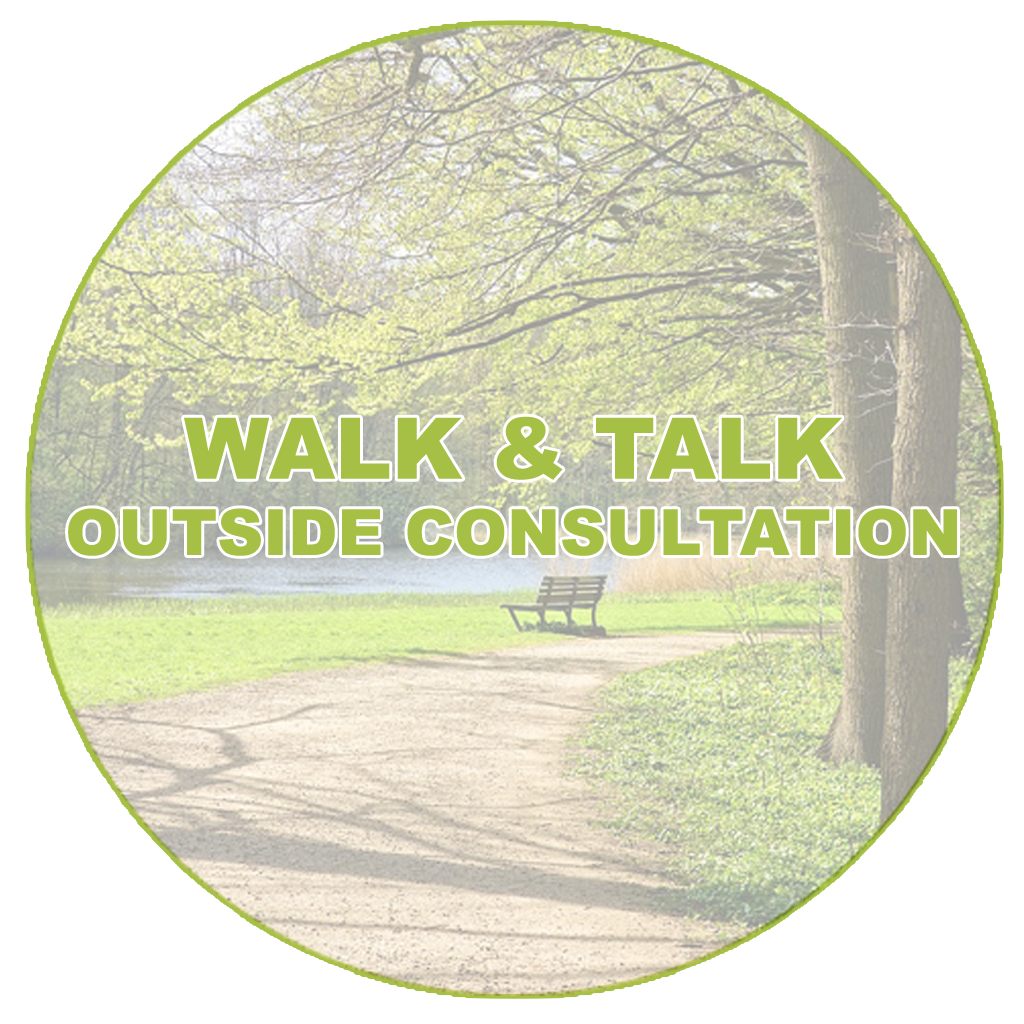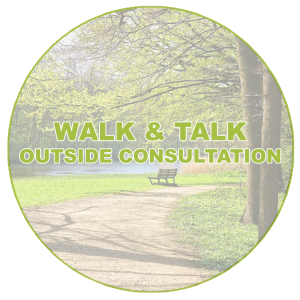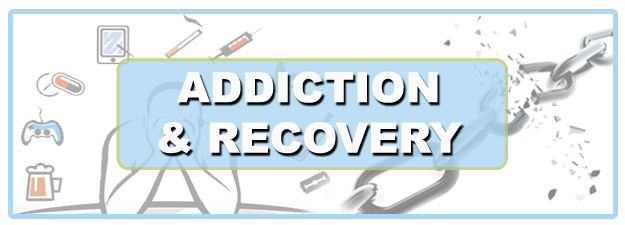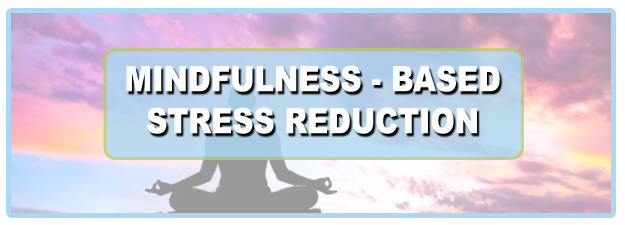Mindfulness-Based Stress Reduction (MBSR)
Learn Proven Techniques to Reduce Stress in this secular 8-week MBSR class!
Mindfulness:
A Medically Sound Practice for Learning, Growing, and Healing
In 1979, Jon Kabat-Zinn founded the Stress Reduction Clinic at the University of Massachusetts to bring a form of meditation, MBSR, known as mindfulness into the medical mainstream. Mindfulness is a basic human quality, a way of learning to pay attention to whatever is happening in your life that allows you a greater sense of connection to your life inwardly and outwardly. Mindfulness is also a practice, a systematic method aimed at cultivating clarity, insight, and understanding. In the context of your health, mindfulness is a way for you to experientially learn to take better care of yourself by exploring and understanding the interplay of mind and body and mobilizing your own inner resources for coping, growing, and healing. More than three decades of scientific research at medical centers all over the world suggests that training in mindfulness and MBSR can positively and often profoundly affect participants’ ability to reduce the stress levels of everyday life, medical symptoms, and psychological distress while learning to live life more fully.
More than two decades of published research indicates that the majority of people who complete the MBSR curriculum report:
- Lasting decreases in physical and psychological symptoms
- Greater energy and enthusiasm for life
- An increased ability to relax
- Improved self-esteem
- Reductions in pain levels and an enhanced ability to cope with pain that may not go away
- An ability to cope more effectively with both short- and long-term stressful situations
Mindfulness is a way of learning to relate directly to whatever is happening in your life, a way of taking charge of your life, a way of consciously and systematically working with your own stress, pain, illness, and the challenges and demands of everyday life. In contrast, you’ve probably encountered moments of “mindlessness”—a loss of awareness resulting in forgetfulness, separation from self, and a sense of living mechanically. Restoring within yourself, a balanced sense of health and well-being requires an increased awareness of all aspects of self, including body and mind, heart and soul. MBSR (Mindfulness-Based Stress Reduction) is intended to ignite this inner capacity and infuse your life with awareness.
Reawaken to What You Already Are
Mindfulness is not something that you have to “get” or acquire. It is already within you — a deep internal resource available and patiently waiting to be released and used in the service of learning, growing, and healing. While the practices have been adapted from classical Buddhist meditation and yoga traditions, MBSR is a secular, scientifically-informed approach that operates in harmony with any belief system or spiritual background.


MBSR has benefitted people with the following:
Stress – from work, school, family, finances, illness, aging, grief, uncertainty about the future, and feeling “out of control”
Medical conditions – including chronic illness or pain, high blood pressure, fibromyalgia, cancer, heart disease, asthma, GI distress, skin disorders, headaches, and many other conditions.
Mindfulness-Based Stress Reduction (MBSR) is highly respected within the medical community. It is not offered as an alternative to traditional medical and psychological treatments but as a complement to these approaches. My experiences over two decades suggest that doing what you can for yourself, coupled with what your physician can do for you, can be far more effective than either approach on its own.
WHAT TO EXPECT:
The 8-week Mindfulness-Based Stress Reduction (MBSR) program teaches secular mindful meditation with a goal of present moment living. The class is held for 2.5 hrs per week for 8-weeks.
Participants are instructed on body posture and how to focus on the breath. They are reminded that wandering minds are normal and are encouraged to bring their mind back to the focus on their breath, non-judgmentally. Participants learn to slow down and connect with themselves and their bodies AND they learn self-compassion.
Participants are recommended to meditate between classes for up to 1 hour per day. Those that take this recommendation seriously ~ they are the ones that benefit most from this 8-week class. Upon completion of the 8-Week MBSR class, participants report noticing decreased anxiety and pain, increased mood and sleep quality, as well as improved relationships! Many also report finding more joy in life!
Some of the Formal Meditations included in this 8-week class: awareness of breath/sound/thought and emotion, walking, sitting, body scan, and mindful movement.
*Allow at least 1 hour per day, 6 days per week, for Informal Home Practices.
MBSR is not therapy and is not intended to replace individual coaching.
Here are the Core Sessions to Help You Create Your Own Mindfulness Practice:
Week 1:
ORIENTATION: This introductory session will acquaint you with the practice of mindfulness as taught at the Center for Mindfulness in Medicine, Health Care, and Society at the University of Massachusetts Medical School. You will learn how this secular, scientific, evidence-based practice has become an accepted part of mainstream medicine, and discover how it can positively affect the quality of your everyday life.
Week 2:
Here you will receive an overview of the course and establish the learning context for the rest of your experience. You will learn the theory and evidence of mind-body medicine and how to apply it in your life. You’ll be experientially introduced to mindful eating, mindful breathing, and the body-scan method, with a special emphasis on what it means to be fully engaged in the present moment.
Week 3:
Perception is key in mindfulness—how you see things (or don’t see them) will determine in a large part how you respond. This week’s session and practices will ask you to examine your perceptions, assumptions, and the way you view the world. You will learn to use the body-scan practice to cultivate a greater degree of awareness of how you react to stressful situations. Changing the way you perceive and respond to difficulties and challenges will impact the short- and long-term effects of stress on your mind and body.
Week 4:
By practicing mindfulness, we cultivate curiosity and openness to the full range of our experience, and through this process, our ability to pay attention becomes more flexible. This week, your practice will focus on the development of your ability to concentrate and systematically expand your field of awareness. You’ll learn about the physiological and psychological bases of stress reactivity, and experience mindful strategies for responding in positive, proactive ways to stressful situations.
Week 5:
In this session, you’ll practice several distinct yet interrelated mindfulness practices—mindful Hatha yoga, sitting meditation, and walking meditation. This is an ideal time to share your insights about your experiences with formal practice and integrating mindfulness into your daily life. You will discover that there is both pleasure and power in being present—you’ll directly attend to and investigate how your experiences create such reactions as pleasure or discomfort in # the mind and body.
Week 6:
Resilience or “stress hardiness” is our ability to return to equilibrium after stressful situations. This week, you will focus on transformational coping strategies to broaden your inner resources and enhance your resilience through mindfulness practice. You’ll also learn the fundamentals of interpersonal mindfulness—applying awareness and presence at times when communication becomes difficult or fraught with strong emotions. You’ll gain direct experience of a variety of styles for more effective and creative interpersonal communication.
Week 7:
At the halfway point in this course, you should now be familiar with the foundations of mindfulness and able to focus on applying it more rapidly and effectively to specific challenges and stressors in your life.
This week you will begin to pay attention to the places where you might be stuck in repeating, unhealthy patterns that you can disarm through mindful awareness. You will also learn how to apply mindfulness at the critical moment when you experience a physical sensation, intense emotion, or condition, with special attention to exploring the effect of reactivity in health and illness.
Week 8:
Mindfulness is most effective when it is a lifetime commitment. This week, you will explore the many ways that you can integrate mindfulness more fully and personally into your life. While having a dedicated regular practice for mindfulness meditation is important and beneficial, it is just as important to bring a broader sense of awareness and presence to every moment in your life and to use non-judgmental mindfulness in your self-reflection and decision-making processes. You’ll learn how to maintain the discipline and flexibility of daily practice as circumstances change over the course of your life.
FREQUENTLY ASKED QUESTIONS ABOUT MBSR:
Why should I use Mindfulness?
Mindful meditation can connect your mind and body, and allow your focus to be on one subject at a time which reduces stress.
Who uses it?
The NFL uses mindfulness! Sports Psychologist and Meditation Coach with the Super Bowl-winning Seattle Seahawks, Dr. Michael Gervais, has helped this team achieve success by using several mental techniques including Mindfulness.
Patients with chronic pain use Mindfulness to accept their pain on a moment by moment basis. They report increased peace of mind and a lessening of their pain and worry when they focus on the moment rather than on some time in the future.
Mindfulness is successfully used to prevent relapse with individuals who have been through a treatment program for chemical dependency.
Many others have used Mindful techniques for general well-being, centering and balance in their lives.
How does it work? How can I learn to use it?
If you know a person with anxiety and persistent worrying habits, they may spend much of their time worrying about the future or thinking about the past. Focusing on the present moment rather than the future or the past can positively affect a person’s stress, anxiety or depression.
If you know anyone who has been treated for disordered eating, you may have heard them speak of “intuitive” eating or “mindful” eating. This is the practice of thinking about and enjoying the flavor, texture, and aroma of the food you put into your mouth. This way of eating is exactly the opposite of distracted eating – where you don’t realize how much you ate or even if it tasted good (ex: sitting in front of the TV and mindlessly consuming food or eating in your car while driving down the highway in a rush to get somewhere). When we bring attention to what we are doing, the experience can become much more pleasurable and time can seem to stand still. Imagine bringing that kind of attention to other parts of your life (relationships, work, and hobbies). This kind of focused attention can improve all areas of your life.
IN PERSON:
Zen Wellness Academy offers empowering and goal-oriented 55-minute in person sessions, providing hands-on treatment and education you can take home with you, enabling you to become an active participant in your recovery and future overall wellbeing. Coaching sessions are to help clients learn coping skills, improve their overall wellness, and achieve long-term success in the areas of:
- Addiction & Recovery
- Health & Fitness
- Life Purpose/Life Transition
- Mindfulness-Based Stress Reduction (MBSR)
- Relationship/Discernment
- Spiritual Connection
- Weight Loss / Weight Management
In Person Office Consultation Request
PHONE SESSION:
While my preference is to meet with you in person, I do provide the option of phone coaching sessions if needed. I understand sometimes you are ill, unable to make it back to Dallas, there is inclement weather, or you live elsewhere so we will want to make appropriate accommodations. I also know many of my clients are busy professionals, and a phone call is much easier to work into your schedule than an in-office visit. In addition, it can take a significant amount of courage to begin coaching sessions. Starting with phone coaching session(s) can be less intimidating and you may feel freer to open up and express yourself without being face to face.
How to Prepare:
My preference is to meet with you for your first session in person if at all possible. This gives us better insight into how you interact and an idea of what your body language might be expressing. At this time, discuss with me your need for phone sessions. If an in-person session is not possible, just let me know and we’ll talk about your needs and how the first session will proceed.
What to Expect:
Phone coaching will be very similar to in-person coaching. I will possibly ask more questions to get a better idea of your thoughts and feelings because I’m unable to see your facial expressions or body language.
While your confidentiality is important to me, I cannot guarantee absolute confidentiality because the session is conducted over the phone. Make sure you are in a private place possibly at home, your office, or in your car. We adhere to the same confidentiality guidelines as an in-person session that you will read about in your intake form.
Coaching sessions are to help clients learn coping skills, improve their overall wellness, and achieve long-term success in the areas of:
- Addiction & Recovery
- Health & Fitness
- Life Purpose/Life Transition
- Mindfulness-Based Stress Reduction (MBSR)
- Relationship/Discernment
- Spiritual Connection
- Weight Loss / Weight Management
Phone Session Consultation Request
SKYPE OR VIDEO CHAT:
As technology increases so do our options for coaching avenues. I recognize that many of my clients are busy professionals who are often away from the DFW area, suffer from disabilities that impede office visits or experience unforeseen circumstances that prevent them from coming into the office.
For these clients, Zen Wellness Academy offers the convenience of online Skype coaching sessions.
Skype is a free online service that allows users to make free online phone/video calls and instant messaging.
How to prepare:
I prefer to meet with you face to face for your first session. If this is not a possibility, the first session may be held over the phone. During that session, we can discuss the possibilities of using Skype for subsequent sessions. I will explain the process and be able to answer any questions you may have regarding online coaching.
You will need to install the free Skype software onto your computer prior to your session and create an online ID. Once you have your ID, you will e-mail me with that ID – in return, I will give you my Skype ID so that we may connect.
Prior to your session you will sign into Skype and ensure you are listed as “online.” I will initiate contact and “call” you at the designated appointment time. I will make 3 attempts to contact you via Skype.
What to expect:
Once connected via Skype, your session will proceed in the same manner as a face to face office visit. It is important to remember that while I will work to protect your confidentiality as much as reasonably possible, I cannot guarantee complete confidentiality with Skype coaching.
The client will be responsible for ensuring they are in a private area where their conversation with me cannot be overheard. Likewise, the client must understand that any electronic communication has the possibility of being breached through technological means.
Coaching sessions are to help clients learn coping skills, improve their overall wellness, and achieve long-term success in the areas of:
- Addiction & Recovery
- Health & Fitness
- Life Purpose/Life Transition
- Mindfulness-Based Stress Reduction (MBSR)
- Relationship/Discernment
- Spiritual Connection
- Weight Loss / Weight Management
Video Chat Session Consultation Request
WALK & TALK SESSION:
Zen Wellness Academy is one of the few groups in the DFW area offering Walk and Talk coaching sessions. This unique and innovative form of coaching incorporates walking into your coaching sessions. At Zen Wellness Academy we know the importance and impact that the mind-body connection has on all of us. If you are among the many people who think better on your feet, or like the idea of therapy but aren’t sure if sitting in an office discussing your challenges and life history is right for you, then Walk and Talk therapy may be the answer.
The physical act of walking and literally moving forward can often be a catalyst to change. Some clients find it’s easier to connect with their therapist and with themselves when they have the distraction of walking during sessions. When we feel stuck in a situation, movement can often propel us into action and help us process the emotions that have been keeping us in one place.
How to prepare:
When deciding if Walk-and-Talk therapy is right for you, first ensure you are healthy enough for 50 minutes of walking. Keep in mind that session length, objectives, and techniques will be the same as in a traditional coaching setting. While your first visit will take place in our office, your subsequent Walk and Talk sessions will be in a predetermined location that has been set up with Dr. Carla. It is important to arrive a few minutes early to ensure there are no complications with finding one another. Finally, be prepared to be on your feet for much of the coaching session, thus dressing accordingly will provide you with a more comfortable and effective session.
What to expect:
Your initial session will be held in our office. At this time Dr. Carla will ask you some guided questions meant to create an overall understanding of who you are, your history, and your subjective world view as well as what challenges brought you to coaching.
Dr. Carla will then work with you on developing a set of collaborative goals for coaching to get an idea of what you would like to accomplish and how we can help you achieve that. From there, Dr. Carla will help you determine if Walk and Talk therapy are right for you. Understand that it may take more than one initial session before beginning to meet for walks as we work to build a trust relationship and momentum for coaching.
Dr. Carla can answer any questions you may have concerning how the process works as well as cover the limitations to confidentiality. Because the sessions take place in a more public environment than our offices, we cannot guarantee complete confidentiality. Should you encounter anyone you know during the session Dr. Carla will defer to you on how to handle the situation. Your confidentiality is of the utmost importance to us and we will respect however you choose to proceed. Should Dr. Carla be approached, she will not make introductions of other people and will quickly disengage from the conversation. We encourage you to let Dr. Carla know if at any point you would like to stop and rest during your walk. The pace will be determined by you, and we may choose to speed up or slow down depending on your level of comfort or to increase privacy.
Once determined that Walk and Talk coaching is the right fit for you, a convenient location will be decided upon by you and Dr. Carla. Venues may include White Rock Lake, the SMU campus, the Katy Trail, the Galleria or North Park Mall, or another agreed upon location. If your session is set to occur outdoors and inclement weather prevents an outdoor session you may choose to have your session in the office or reschedule with no cancellation fee.
Results:
Increasing research on the Mind-Body connection has shown a vital interdependence between the two, which is why we at Zen Wellness Academy place a high level of importance of focusing on both the mind as well as the body. Walk and Talk coaching incorporates aspects of both physical activity and emotional discovery to facilitate a higher level of awareness and fulfillment. This new and unique modality is meant to create a sense of confidence and strength as well as highlighting the unity of the Body and Mind.
Coaching sessions are to help clients learn coping skills, improve their overall wellness, and achieve long-term success in the areas of:
- Addiction & Recovery
- Health & Fitness
- Life Purpose/Life Transition
- Mindfulness-Based Stress Reduction (MBSR)
- Relationship/Discernment
- Spiritual Connection
- Weight Loss / Weight Management





















